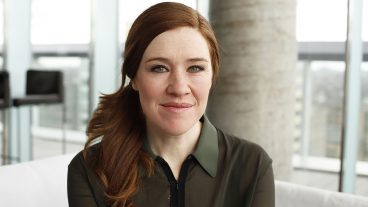Elizabeth Manley has skated in two Olympic Games, six World Championships, and has won three National Titles. She won a silver medal in 1988 and was the first Canadian woman to successfully land a triple-double combination jump in competition.
Leading up to her silver medal, it looked like she had everything but outside of the public eye, Elizabeth struggled with mental illness as she followed a rigorous training schedule isolated from her family.
In a recent talk she did for Ontario Shores Centre for Mental Health Sciences covered by Metroland Durham Region Media Group, Elizabeth discussed the importance of mental health and the journey to her recovery. Below is a segment from the article, read the whole piece here:
One year before the 1984 Winter Olympics in Sarajevo, Manley’s coach — who by then was a father figure to her — suddenly broke the bad news that he could no longer coach her.
“He gave us some excuse that he felt he wasn’t good enough to take me to an Olympic Games.”
Many years later, she learned that he had been diagnosed with AIDS and didn’t want her to have to endure seeing his health decline. But at the time, the 16-year-old couldn’t understand how he could abandon her. She felt she had lost her skating career.
…
As an athlete, Manley said she’d been trained to keep her emotions in check in front of competitors, and this was the first sign that she wasn’t OK. With no money for a new coach who could train her at the same level, she knew she had to give up skating.
“I went to my room, put my skates away, put all my skating clothes away, and I cried all night.”
The next day, her mother received a call from Skate Canada. They offered to send their champion to Lake Placid, N.Y., and set her up with a place to stay and a new coach. It was a glimmer of hope that soon faded when she arrived at her billet house, which reminded her of the The Addams Family residence. The woman living there was a hoarder, and the only space that wasn’t cluttered was the attic, which is where Manley slept.
Soon after, she met her new coach from Austria, who did not speak much English but one word he did know was “fat” and that’s what he called her. Feeling isolated, combined with a rigorous training routine, led Manley to become depressed. She put on weight, and her hair started falling out in handfuls.
Her mother immediately arrived to pick her up and take her back to Ottawa. After undergoing several tests, doctors diagnosed her with clinical depression, and she was offered two treatment options: drug therapy or talk therapy.
“Remember, this is the ’80s, so as far as talk therapy, there was very little out there, and who was available was very expensive, and we had no money,” she said.
“Drug therapy scared me — it doesn’t today … but I was an athlete that was drug-tested constantly.”
It was around that time that Manley said she made a decision that she was going to take her own life.
“I thought people would be better without me. I didn’t want to be a burden to my mom. I didn’t want to hurt people. I didn’t want to let Canada down.”
The only thing that stopped her from going through with it was not wanting to leave her mother alone. After placing fourth in the national figure skating championships and being stripped of her uniform, Manley was at her lowest. Then, she received an unexpected call from a therapist who offered to treat her at no charge.
“One therapy session turned into 10, turned into 50, turned into over 200 — all because somebody cared about me, somebody reached out to help me.”
Once she was ready to go back to skating, she was able to approach it with a new mindset.
“I said, ‘I feel good. I just want to skate; I don’t want to compete. I don’t want to talk about medals; I don’t want to talk about Olympics. I just want to skate because I love it.’ And that turned into me being handed the uniform for Calgary.”
…
Today, she said she’s proud to be able to finally share her story, to not only reach out to those suffering in silence, but to thank staff at facilities like Ontario Shores, whose mission it is to help people in need.
“You help the Elizabeth Manleys … I would not be standing here today without help, and I can honestly say that.”
Through her talks, Elizabeth shares her story of overcoming the odds, the lessons she learned as an Olympic champion, and her struggles with depression and the stigma around mental health. Interested in learning more about her and what she can bring to your next event? Email us at [email protected].




